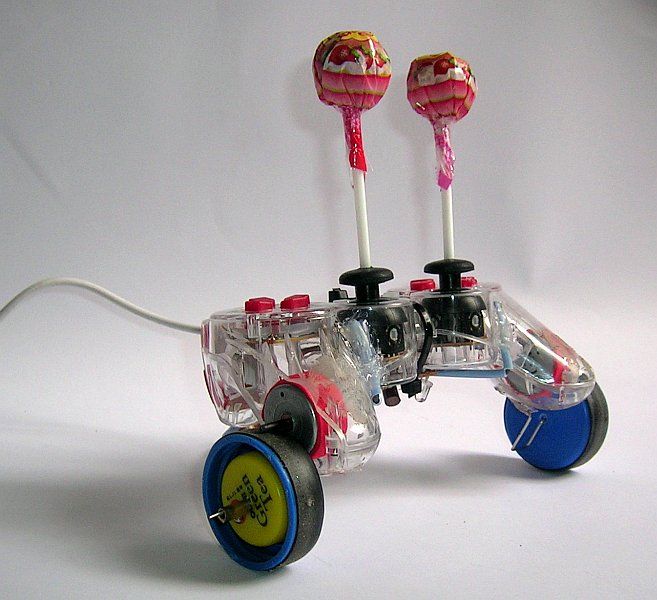Winners of $10 Robot Challenge Announced
The African Robotics Network has announced the winners of its 10 Dollar Robot Design Challenge
The Suckerbot, one of the winners.
The African Robotics Network (AFRON) announced today at Maker Faire in New York the winners of its 10 Dollar Robot Design Challenge.
AFRON is a group of roboticists who want to mobilize institutions and individuals working on robotics-related areas to improve communication and collaboration in African countries.
The 10 Dollar Robot Design Challenge, announced early this year, received 28 entries and selected 10 winners. The goal was fostering the creation of affordable robots for education (especially in primary and secondary schools).
AFRON divided the challenge in three categories: tethered, for robots with computing and programming off-board (on a laptop, for example); traditional, for robots with computing on-board and programming off-board; and "all-in-one," for robots with computing and programming on-board.
In the tethered category, the winners are:
1. Suckerbot (Thailand)
https://www.tomtilley.net/projects/suckerbot/
2. Baobot (United States)
https://baobot.org/
3. Afrobot (United States)
https://www.afrobot.org
4. RoboArm (Nigeria)
https://www.roboarmblog.wordpress.com
In the traditional category, the winners are:
1. Kilobot (United States)
https://sites.google.com/site/afron10dollarrobot/
2. SwarmRobot (China)
https://wiki.xinchejian.com/wiki/Xinchejian_Shanghai_Hackerspace_AFRON_$10_
Competition_submission
3. SEG (United States)
https://people.csail.mit.edu/cagdas/tmpAFRON//SEG/SEG__MITs_Origami_Inspired
_Submission.html
4. DiscBot (United States)
https://arcbotics.com/afron-submission/
And in the all-in-one category, the two winners are:
1. MITBOTS (India)
https://mitbots.com/proposal_3/
2. N-Bot (Brazil)
https://www.natalnet.br/~aroca/afron/index.html
The $10 cost was a target but AFRON accepted entries that did not reach that goal. Participants had to submit a high-level description of their designs, including total cost, list of parts, drawings, software, and step-by-step instructions. They also had to submit a description of the educational applications for the robot.
The jury evaluated entries based on education impact, reproducibility, and affordability. The jury included Ashitey Trebi-Ollennu, from NASA JPL; Alaa Khamis from Suez Canal University, Egypt; M. Bernardine Dias from Carnegie Mellon University; Brett Browning, also from Carnegie Mellon; Tracy Booyson from University of Cape Town, South Africa; and Sam Cubero, the Petroleum Institute, United Arab Emirates. Prizes consisted of cash and Raspberry Pi boards.
Congrats to the organizers, participants, and winners!
UPDATED 1 October, 12:40 p.m.
Erico Guizzo is the Director of Digital Innovation at IEEE Spectrum, and cofounder of the IEEE Robots Guide, an award-winning interactive site about robotics. He oversees the operation, integration, and new feature development for all digital properties and platforms, including the Spectrum website, newsletters, CMS, editorial workflow systems, and analytics and AI tools. An IEEE Member, he is an electrical engineer by training and has a master’s degree in science writing from MIT.
